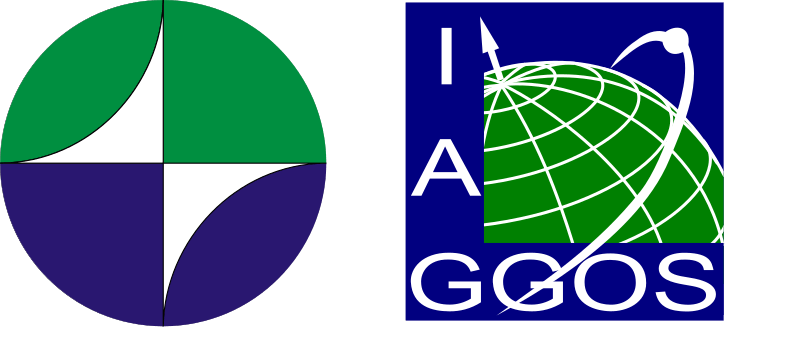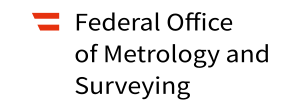GGOS History
The establishment of the Global Geodetic Observing System (GGOS) has been only possible thanks to the strong international cooperation promoted and hosted by the International Association of Geodesy (IAG) for more than fifteen decades. The idea of GGOS was born in the end of the 1990s.
History of GGOS Governing Board Members
Since GGOS was established as a own entity within IAG in 2007, the following key positions on the GGOS Giverning Board (or the former GGOS Coordinating Board) have been held by the following individuals.
GGOS Chair / President | |
| Laura Sánchez (Germany) | since 2023 |
| Basara Miyahara (Japan) | 2019-2023 |
| Richard Gross (USA) | 2017-2019 |
| Hansjörg Kuterer (Germany) | 2011-2017 |
| Markus Rothacher (Switzerland) | 2007-2011 |
GGOS Vice Chair/ Vice President | |
| Anna Riddell (Australia) | since 2023 |
| Laura Sánchez (Germany) | 2019-2023 |
| Ruth Neilan (USA) | 2010-2019 |
| Hans-Peter Plag (USA) | 2007-2010 |
Director of GGOS Coordinating Office | |
| Martin Sehnal (Austria) | since 2019 |
| Helmut Titz (Austria) | 2018-2019 |
| Matthias Madzak (Austria) | 2017-2018 |
| Günther Stangl (Austria) | 2016-2017 |
| Allison Craddock (Germany) | 2015-2016 |
| Giuseppe Bianco (Italy) | 2010-2015 |
Manager of External Relations | |
| Allison Craddock (USA) | since 2018 |
Director of Bureau of Networks and Observations | |
| Mike Pearlman (USA) | since 2009 |
Director of Bureau of Networks and Observations | |
| Detlef Angermann (Germany) | since 2011 |
| Urs Hugentobler (Germany) | 2009-2011 |
Chair of GGOS Science Panel | |
| José Manuel Ferrándiz (Spain) | since 2023 |
| Kosuke Heki (Japan) | 2017-2023 |
| Richard Gross (USA) | 2007-2017 |
IAG President (or representative) | |
| Richard Gross (USA) | 2015-2017, since 2023 |
| Zuheir Altamimi (France) | 2017-2023 |
| Chris Rizos (Australia) | 2011-2015 |
Representatives, GGOS Affiliates | |
| Yusuke Yokota (Japan) | since 2023 |
| Toshimichi Otsubo (Japan) | 2015-2023 |
| Hansjörg Kutterer (Germany) | since 2021 |
Representatives, IAG Services | |
| Riccardo Barzaghi (Italy) | since 2015 |
| Daniela Thaller (Germany) | 2019-2023 |
| Sean Bruinsma (France) | 2019-2023 |
| Robert Heinkelmann (Germany) | 2019-2023 |
| Ruth Neilan (USA) | 2011-2019 |
| Christoph Foerste (Germany) | 2015-2019 |
| Urs Marti (Germany) | 2015-2019 |
| Pascal Willis (France) | 2011-2015 |
| Erricos Pavlis (USA) | 2011-2015 |
| Thomas Herring (USA) | 2011-2015 |
Representatives, IAG ICC’s and Commissions | |
| Tonie Van Dam (Luxembourg) | 2011-2015, 2019-2023 |
| Adrian Jäggi (Switzerland) | 2019-2023 |
| Pavel Novák (Czech Republic) | 2015-2019 |
| Roland Pail (Germany) | 2015-2019 |
| Srinivas Bettadpur (USA) | 2011-2015 |
Members-at-Large | |
| Claudia Tocho (Argentinia) | 2021-2027 |
| Aletha de Witt (Sout Africa) | 2023-2027 |
| Ropesh Goyal (India) | 2023-2027 |
| Nicholas Brown (Australia) | 2019-2023 |
| Ludwig Combrinck (Sout Africa) | 2015-2023 |
| Maria Cristina Pacino (Argentinia) | 2011-2015, 2019-2021 |
| Luiz Paulo Fortes (Brazilia) | 2015-2019 |
| Gary Johnston (Australia) | 2015-2019 |
| Yoichi Fukuda (Japan) | 2011-2015 |
| Yamin Dang (China) | 2011-2015 |
GGOS Focus Areas (former Themes) | |
Artificial Intelligence for Geodesy (AI4G) | |
| Benedikt Soja (Switzerland) | since 2023 |
Geohazards Monitoring | |
| Timothy Melbourne (USA) | since 2023 |
| John LaBrecque (USA) | 2015-2023 |
| Ioannis D. Doukas (Greece) | 2011-2015 |
| Tim Dixon (USA) | 2010-2011 |
Geodetic Space Weather Research | |
| Michael Schmidt (Germany) | since 2017 |
Global Unified Height System (2010-2023) | |
| Laura Sánchez (Germany) | 2015-2023 |
| Michael Sideris (Canada) | 2010-2015 |
Sea Level Change (2010-2019) | |
| Tilo Schöne (Germany) | 2011-2019 |
| C.K. Shum (USA) | 2010-2011 |


